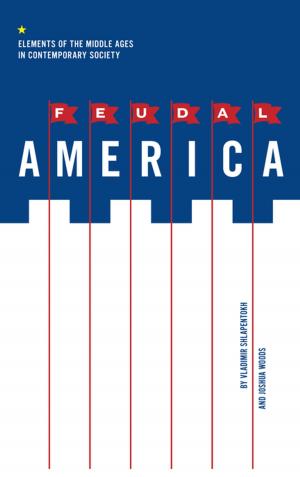Pietas from Vergil to Dryden
Fiction & Literature, Literary Theory & Criticism, Ancient & Classical, British, Theory| Author: | James Garrison | ISBN: | 9780271075389 |
| Publisher: | Penn State University Press | Publication: | March 23, 1992 |
| Imprint: | Penn State University Press | Language: | English |
| Author: | James Garrison |
| ISBN: | 9780271075389 |
| Publisher: | Penn State University Press |
| Publication: | March 23, 1992 |
| Imprint: | Penn State University Press |
| Language: | English |
For centuries the most revered poem in the Western literary canon, Vergil's Aeneid celebrates the Roman virtue of pietas. In the preface to his English translation of the poem, John Dryden attempts to explain all that this virtue includes: "Piety alone," he writes, "comprehends the whole Duty of Man towards the Gods, towards his Country, and towards his Relations." Dryden's definition belongs to a dialogue about meaning that reflects a history of contention over religious, political, and moral issues of enduring cultural significance. Because it is the site of antagonism between pagan and Christian, republican and imperialist, emperor and pope, Protestant and Catholic, pietas and its derivatives in the modern languages bring to literary works multiple contexts of ideological dispute. This book traces the history of the Vergilian ideal from classical Latin to neoclassical English literature. In the process of, it comparatively engages interpretation of a range of literary works diversely responsive to the Aeneid: from the histories and historical epics of the Silver Age, to the medieval mirrors for magistrates, to Renaissance adaptations of Aeneid 4 and 12, and finally to Dryden's complete translation.
For centuries the most revered poem in the Western literary canon, Vergil's Aeneid celebrates the Roman virtue of pietas. In the preface to his English translation of the poem, John Dryden attempts to explain all that this virtue includes: "Piety alone," he writes, "comprehends the whole Duty of Man towards the Gods, towards his Country, and towards his Relations." Dryden's definition belongs to a dialogue about meaning that reflects a history of contention over religious, political, and moral issues of enduring cultural significance. Because it is the site of antagonism between pagan and Christian, republican and imperialist, emperor and pope, Protestant and Catholic, pietas and its derivatives in the modern languages bring to literary works multiple contexts of ideological dispute. This book traces the history of the Vergilian ideal from classical Latin to neoclassical English literature. In the process of, it comparatively engages interpretation of a range of literary works diversely responsive to the Aeneid: from the histories and historical epics of the Silver Age, to the medieval mirrors for magistrates, to Renaissance adaptations of Aeneid 4 and 12, and finally to Dryden's complete translation.















